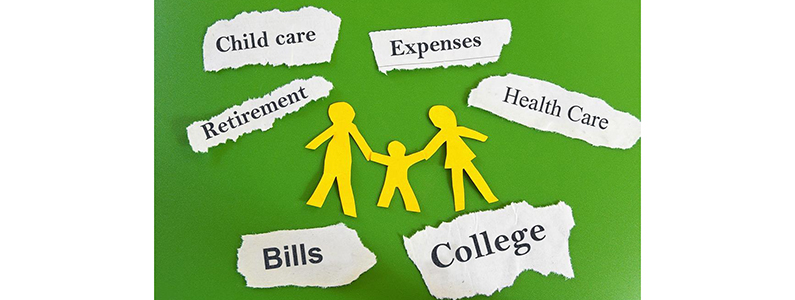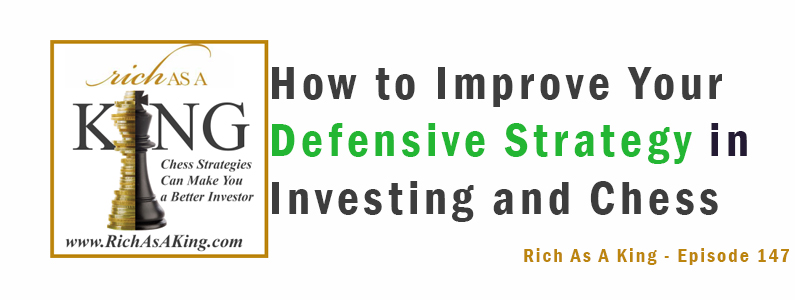
by Doug Goldstein CFP® | May 8, 2018 | Decision Making, Strategic Thinking |
If you want to be a successful investor, your first step is to create and follow realistic financial goals. Why is this important? When people invest without a particular goal in mind, their investments lack focus and they change strategies frequently. A clear goal keeps you on a definite path and you are less likely to get distracted. In defining your goals, don’t let your parents, boss, or friends dictate your direction. Think about your specific desire, write it down, and then figure out how to get there. Is your goal realistic? Once you’ve decided upon your goal, see if it is realistic. Here’s where it helps to get some outside advice, whether from a friend, family member, or professional advisor. For example, let’s say your goal is to retire at age 55 and you calculate that you’ll need $4 million in savings to achieve the lifestyle you want. You divide that amount of money by the number of years until your desired retirement age. But is this realistic? If you’re 51 today and you earn $100,000 per year, there is no way you can save $1 million a year for the next four years. On the other hand, if you’re 25 with a great income and you can figure out how to save $60,000 every year, you could very possibly reach your $4 million goal if you earn enough to meet your savings target and if you average a 5% return on your money over the next 30 years. Make sure you make a distinction between a realistic goal and a wish. What you can learn about goal-setting... Click for more

by Douglas Goldstein | Nov 28, 2017 | Chess Strategies, Podcasts, Strategic Thinking |
What helped Susan Polgar win at chess over and over again? She began winning chess at age four, and became the first woman in chess history to achieve the title of grandmaster. Find out what strategy she used to win at chess, and how you can use the same strategy to stay ahead even when the market knocks you... Click for more

by Doug Goldstein CFP® | Oct 24, 2017 | Chess Strategies, Strategic Thinking |
If you want to boost your financial returns, try applying one of my favorite chess tactics – the chess fork – to managing your money. What is a chess fork, and how does it work? When a chess player forks his opponent, he moves his piece to a strategic square, threatening two of his opponent’s pieces at the same time. Since his opponent cannot save both threatened pieces simultaneously, the chess fork gives its player a distinct advantage. A chess fork can help you achieve two goals through a single action, as illustrated by the expression: “Kill two birds with one stone.” In finance, this can be compared to enhancing one of your assets so that it fulfills two or more of your financial goals. In this way, you receive multiple benefits from a single investment. Enhance your retirement funds One great way to make your assets work double-time for you is to put money into an IRA or a 401(k). These retirement plans are similar to the concept of a using a fork in chess, since a single action reaps multiple benefits: You get a current tax deduction – the money you put into the retirement plan lowers the amount of tax you pay today. Your money grows tax deferred – if you put money into an IRA or 401(k), you are only taxed on the profits when you withdraw any funds. Then, you are only taxed on the amount that you have withdrawn, not what remains inside the account. By leaving your money to grow untaxed, you will gain more. If you have a 401(k) plan from... Click for more

by Douglas Goldstein | Oct 3, 2017 | Chess Strategies, Podcasts, Strategic Thinking |
Do you use a defensive strategy when you play chess or manage your finances? Chess grandmasters use defensive tactics to prevent their opponents from having any chance of successful attack. Listen to this podcast to get tactics you can use to defend your investments, as well as your chess pieces. The opposite of being defensive is being aggressive. Listen to The Goldstein on Gelt Show from 10/2/17 to get the free download “You Don’t Even Know How Aggressive an Investor You Really... Click for more

by Doug Goldstein CFP® | Jun 6, 2017 | Chess, Strategic Thinking |
Grandmaster Garry Kasparov gave Grandmaster Susan Polgar’s chess team a good tip for dealing with time pressure when he told them, “Always keep ten extra minutes on the clock, or you will end up making rushed decisions.” When you feel pressured by time, it’s easy to make a move that you may later regret. Time pressure can make you feel cornered and desperate, and you may end up moving randomly, feeling accomplished as long as you did something. Take time to make balanced decisions The effects of time pressure are not only felt on the chessboard, but can also be felt in your financial life. For example, pressure to buy/sell a particular investment immediately so you “don’t miss out on a great opportunity” may cause you to act without thinking. Before you make any financial move, you must decide if it is really the best move for you at this time. Tips for minimizing time pressure You can limit time pressure in your financial life by using time more effectively. Save time by paying your bills online or through an automatic payment system. Automate your savings so that you always pay yourself first. This way, you know that it’s done. Organize your time so that you use it productively. Unlike your investments, if you lose time, you can’t make it back. Create a daily calendar, scheduling your tasks to make sure you accomplish the most important things first. When you build your plan, remember to add those ten extra minutes to cover the unexpected things that may cause you to make a rushed decision (remember Kasparov’s advice above?). Efficiency,... Click for more

by Douglas Goldstein | May 16, 2017 | Decision Making, Podcasts, Strategic Thinking |
When playing chess and investing, it’s a good idea to measure your results by looking at performance metrics. But why are metrics important? Find out how measuring performance improves efficiency. If you can measure it, you can improve it! This financial podcast also discusses literacy and its connection with improved living standards in many parts of the... Click for more










